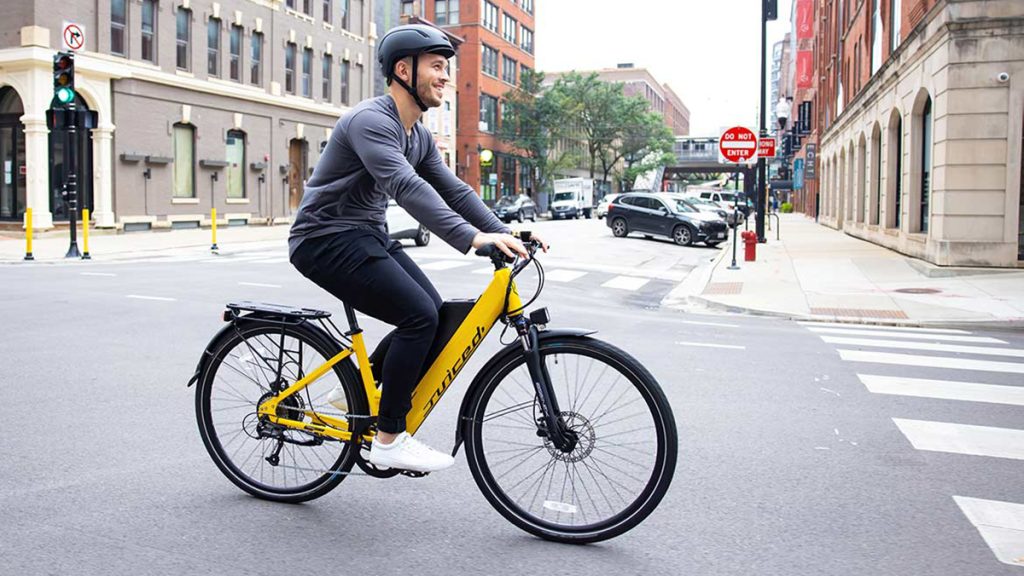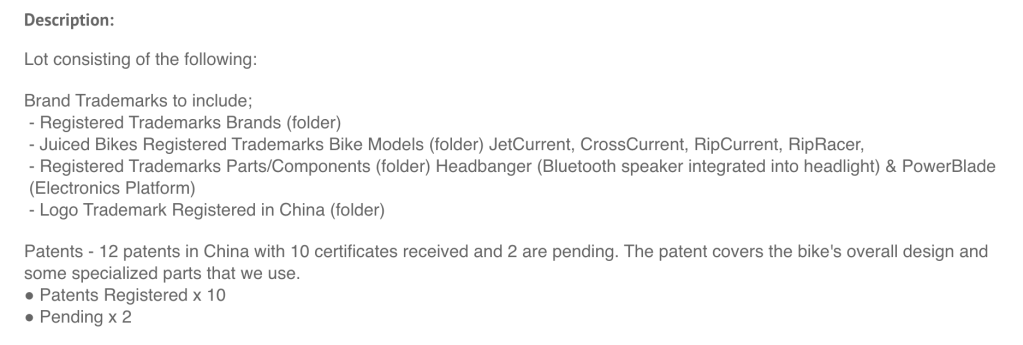
An early pioneer in the North American electric bicycle market, Juiced Bikes appears to be in collapse. According to many customers, the San Diego-based e-bike company has largely ghosted them and failed to respond to repeated customer service inquiries. At the same time, the company’s website is out of stock on all products and its assets appear headed for auction.
There’s no confirmation from the company, but several signs are pointing toward financial distress and a likely closure of the company.
Juiced Bikes is one of the oldest continuously operating e-bike brands in the country. I’m something of a dinosaur of the industry, and even when I got involved with e-bikes back in 2010, Juiced was already a major player (albeit known as Juiced Riders back then).
The company pioneered electric cargo and utility e-bikes in the US with its ODK model, launched a decade before the popular RadRunner. The brand then continued to evolve, becoming one of the first to offer higher-speed and higher-power models for adventurous riders.
But now the brand appears to be in deep enough financial distress to potentially lead to a closure of the company, and radio silence from the brand has only stoked the rumor mill.

Social media is full of customers complaining about a lack of communication from the company. Several have shared instances of their bikes being stuck in service limbo while the company has broken off communications about their repairs or return schedule for the bikes.
Others have shared instances of purchases that have gone unfulfilled for months.
“$2k out for a bike ordered in July, and which I canceled in September after getting continually fed a line about shipping delays,” explained one user on Reddit. “Filed a dispute with my bank but still waiting.”
Juiced Bikes’ website is still operating, yet all of the company’s many e-bike models are currently listed as out of stock.

I’ve reached out to several leaders at the company but have yet to receive an official comment on the brand’s status.
Despite a lack of clarity from the company, the latest development in Juiced’s potential financial collapse saga appears to have sealed the deal, so to speak. The company’s assets are now showing up on an auction house platform commonly used for companies that have gone out of business.
Everything from the company’s existing inventory of products and its tooling in China to its intellectual property rights appears to be listed for sale at auction. Even the company’s Sprinter cargo van with Juiced Bikes branding is up for sale.

The last few years have been a tough period for the electric bike industry. Following the massive wave of e-bike sales in the post-pandemic period, the market cooled significantly leaving many e-bike makers with huge overstock situations.
Venture capital funding also began drying up after the easy money period following the pandemic, further crunching many e-bike companies.
At the same time, dozens of new Chinese-based electric bike brands have opened their doors in an attempt to snag a piece of the massive e-bike pie, often dangling enticingly low prices that several of the US-based brands couldn’t compete with. Leaders in the US budget e-bike market, such as Lectric Ebikes, have further squeezed competitors with aggressive pricing that has helped scoop up massive market share.
We’ve already seen several other large e-bike companies go under in the last year, including SONDORS in the US and VanMoof in Europe. If Juiced Bikes is headed for the same ending, it is unlikely to be the last.
Electrek’s Take
While there’s still no official word from the company, at this point, it appears that Juiced Bikes’ closure is a foregone conclusion. With its assets up for auction, there doesn’t appear to be an endgame for the company as we know it.
This is truly a sad event for the industry and just another reminder that we’re in a reckoning period for the hundreds of e-bike companies all competing for the same customers. Every year there are more e-bikes on the road than ever before, yet the meteoric growth of the post-pandemic years obviously wasn’t sustainable. Just like the American automotive industry eventually pared down the hundred or so car companies in business a century ago, the e-bike market is likely headed in a similar direction.
This is also uniquely painful for Juiced’s customers who have been left waiting for bikes they ordered or hoping to receive service on the products they already own. Fortunately, someone at Juiced appears to have set the website’s inventory to zero to prevent phantom sales that would likely never be delivered, but that doesn’t help those already left out to dry.
If there’s any room for hope, it’s that this doesn’t necessarily mean there is no future for Juiced Bikes. The brand and its assets could still be purchased by an investor or company hoping to revive the e-bike brand. If so, this doesn’t have to be the last mile marker on Juiced’s 15-year-long ride.

